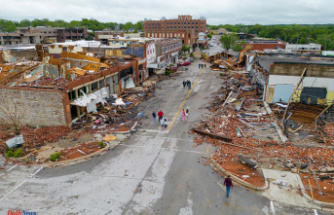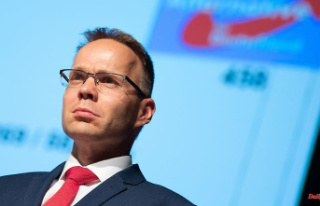Commuters know the problem: if you have to get to work or school on time or want to reach a connecting connection, you are dependent on reliable incoming S-Bahn or other regional trains. That doesn't always work.
Düsseldorf (dpa / lnw) - About every seventh regional train in North Rhine-Westphalia was late in the past year. Compared to 2020, the nationwide "punctuality rate" decreased from 86.8 to 84.2 percent. This emerges from a response from NRW Transport Minister Oliver Krischer (Greens) to a request from the AfD parliamentary group. According to the response from the German Press Agency in Düsseldorf, a train is considered unpunctual if it is more than 3.59 minutes late.
The regional express in particular did not live up to its name: Here the punctuality rate was lowest at 81.1 percent (2020: 84.3), behind the S-Bahn with 83.6 percent (2020: 87.2) and the regional trains with 86.8 percent (2020: 88.5). For all three offers in local rail passenger transport (SPNV), the rate has deteriorated slightly. With a total of around 116 million train kilometers (2020: around 115 million), there were foreseeable cancellations over 8.9 million kilometers (2020: 10.7 million) and unforeseeable cancellations over a further 4.2 million train kilometers (2020: 2.4 million). .)
The data show that the traffic turnaround aimed at by the Greens is "not feasible", concluded the traffic policy spokesman for the AfD parliamentary group, Klaus Esser. "In 2021, 13.1 million train kilometers were canceled in NRW, and there was an increase in delays in SPNV." In order to get more traffic from the road to the rails, there is a lack of reliability, but also of the necessary infrastructure.
"Rail traffic in its current form cannot offer both," said Esser of the dpa. "At the moment, citizens and above all tens of thousands of commuters only have the choice between dilapidated roads or the unreliable and dilapidated railway." In rural areas, regional rail transport is usually not an alternative at all, as there are no necessary stops.
Esser said that the black-green state government had to say goodbye to its “traffic turnaround”. "In the near future there will be no alternative to cars for citizens. Only when the rail network is expanded and trains run punctually and reliably will citizens accept local public transport as a real alternative."












